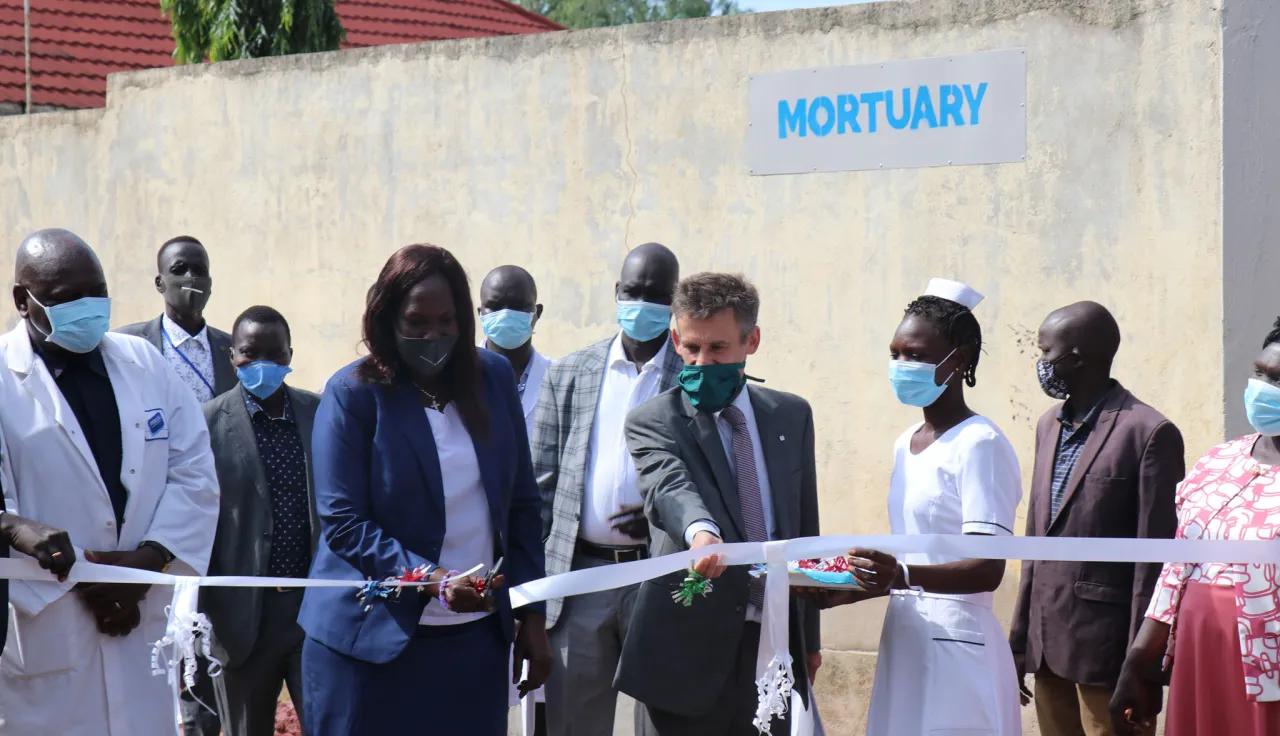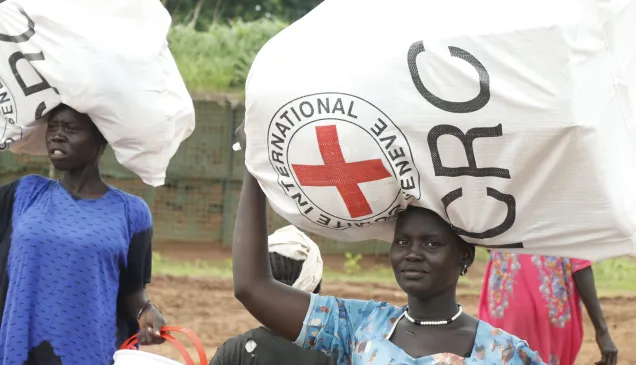Juba (ICRC) – The mortuary at Juba Teaching Hospital, the largest in South Sudan, has been renovated with the support of the International Committee of the Red Cross (ICRC) to help forensics authorities systematically handle the dead with dignity. The overhaul ultimately aims at making sure families know the fate of their loved ones and that they receive, in a dignified way, their remains prior to burial.
"Since the crisis in 2013, the mortuary was damaged and stopped functioning," said Dr Isaac Lemi Bashir, medical assistant at Juba Teaching Hospital. "I used to sleep in the mortuary with a lot of dead bodies dumped outside until they decomposed. The morgue was in very poor shape. There was no freezer, no cooling room, and not even light. The lack of personal protection equipment was a big challenge. For example, we used to utilize the same gloves to wash many dead bodies."
For over one year, the ICRC worked with the authorities to ensure the facility has the equipment and tools to apply the highest possible standards for the dignified management of the dead.
The work includes installation of new mortuary fridges and a freezer to ensure the proper storage of a maximum of 33 human remains, installation of a new solar backup power and a backup water supply system to ensure continuous water supply for the mortuary as well as improved rainwater drainage systems.
"Long after conflict, violence or natural disasters are over, the families of those who are missing continue to search and hope for answers on the fate of their loved ones," said Nourane Houas, protection coordinator at the ICRC. "They never forget. This renovated mortuary is part of our commitment to help the South Sudanese forensic authorities provide answers to families of the missing so that the latter can begin to find closure."
The ICRC has been supporting forensics authorities in South Sudan since 2017 with training and equipment. Forensics is an integral part in helping people know the fate of their loved ones. Today, the ICRC has registered 5,524 people as missing in South Sudan, of which 2,529 have been solved since 2013.
"We call on the authorities to maintain their commitment to ensure that the facility is run and maintained at the high standards that South Sudanese forensic experts and families they serve expect to have," said Nourane Houas. "As long as this facility is protected and well maintained, we believe this renovation can help prevent the anguish that comes with not knowing if your loved one is alive or dead."
About ICRC's work in South Sudan
The ICRC has worked in South Sudan for nearly 40 years to protect and assist families and communities affected by war and violence and help them rebuild their lives.
Together with the South Sudan Red Cross Society in 2019, the ICRC distributed food to more than 267,000 people; provided seeds and tools to 70,000 households and 172,000 people with fishing kits; cared for almost 460,000 patients; performed more than 3,300 surgeries; evacuated 361 people wounded in armed clashes by air; brought clean drinking water to 266,000 people; visited more than 5,700 detainees; and helped keep separated families in touch through more than 19,000 phone calls.
We also reunited 58 people, including children, with their families last year who were separated largely due to conflict.
For more information, contact:
Ali Yousef, Public Relations Officer, ICRC Juba, +211 912360038
Aidah Khamis Woja, Communication officer, ICRC Juba, +211 925230500




